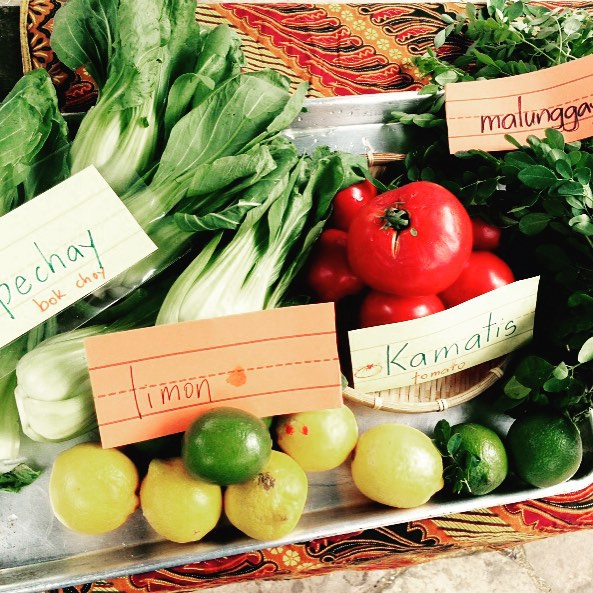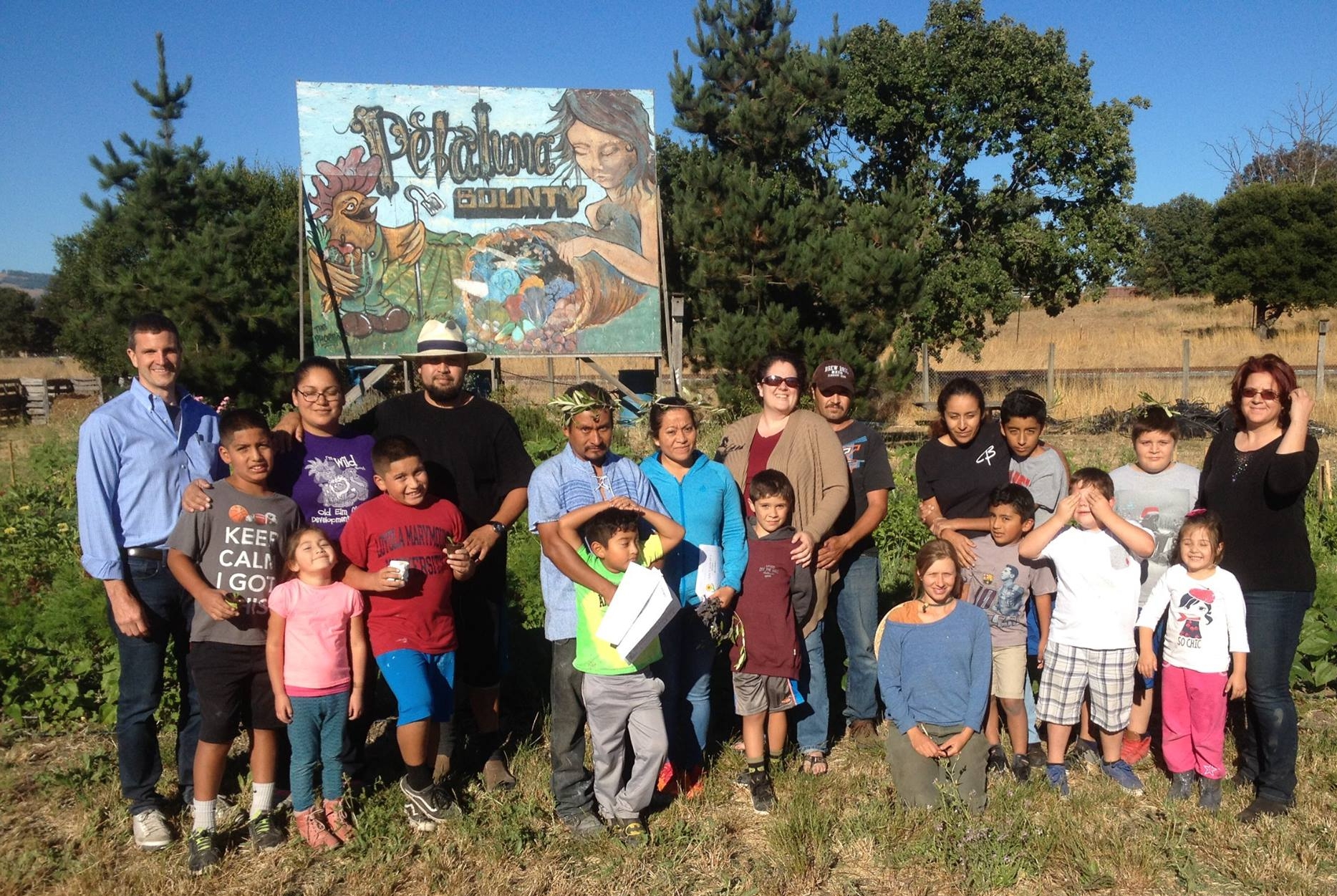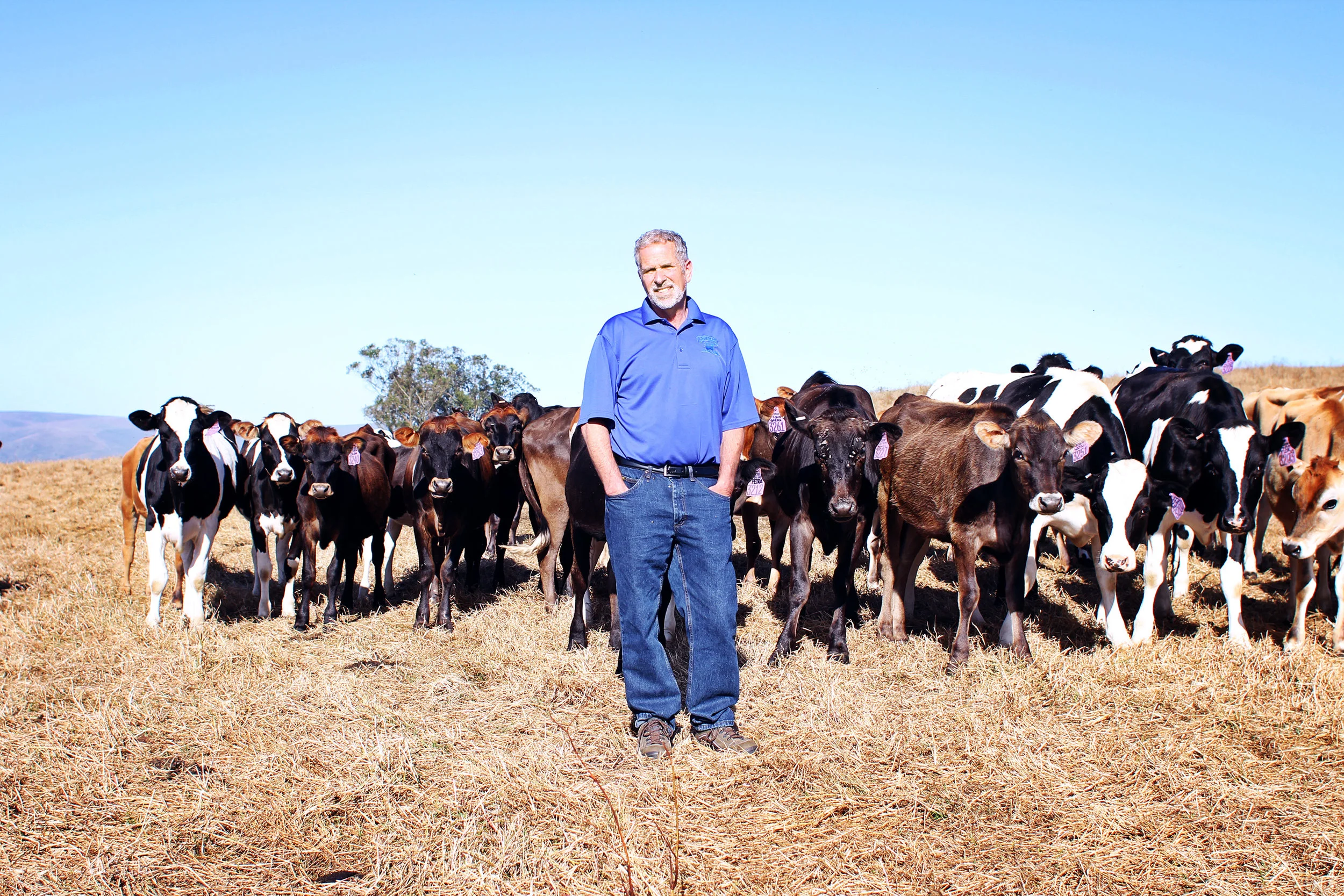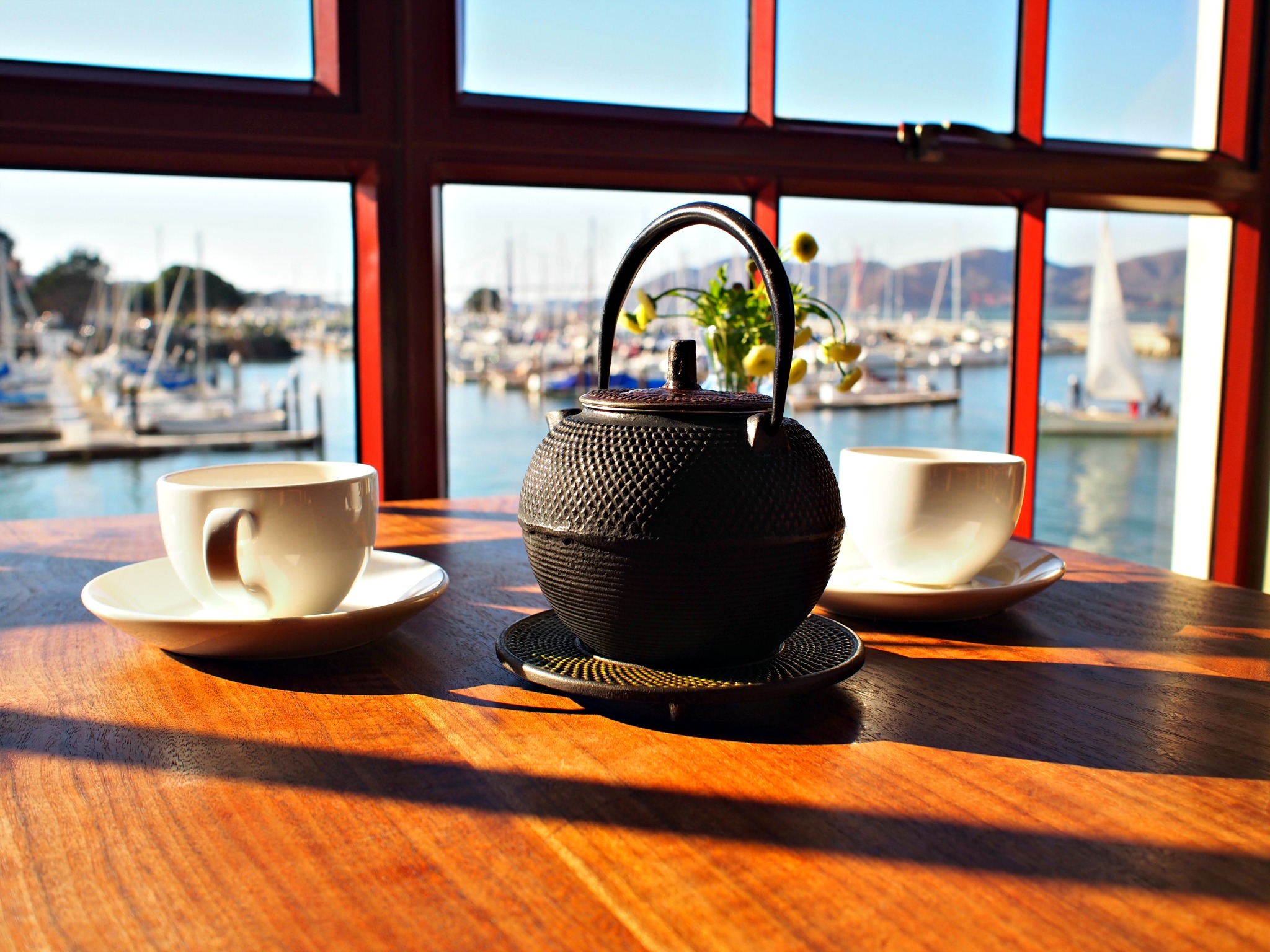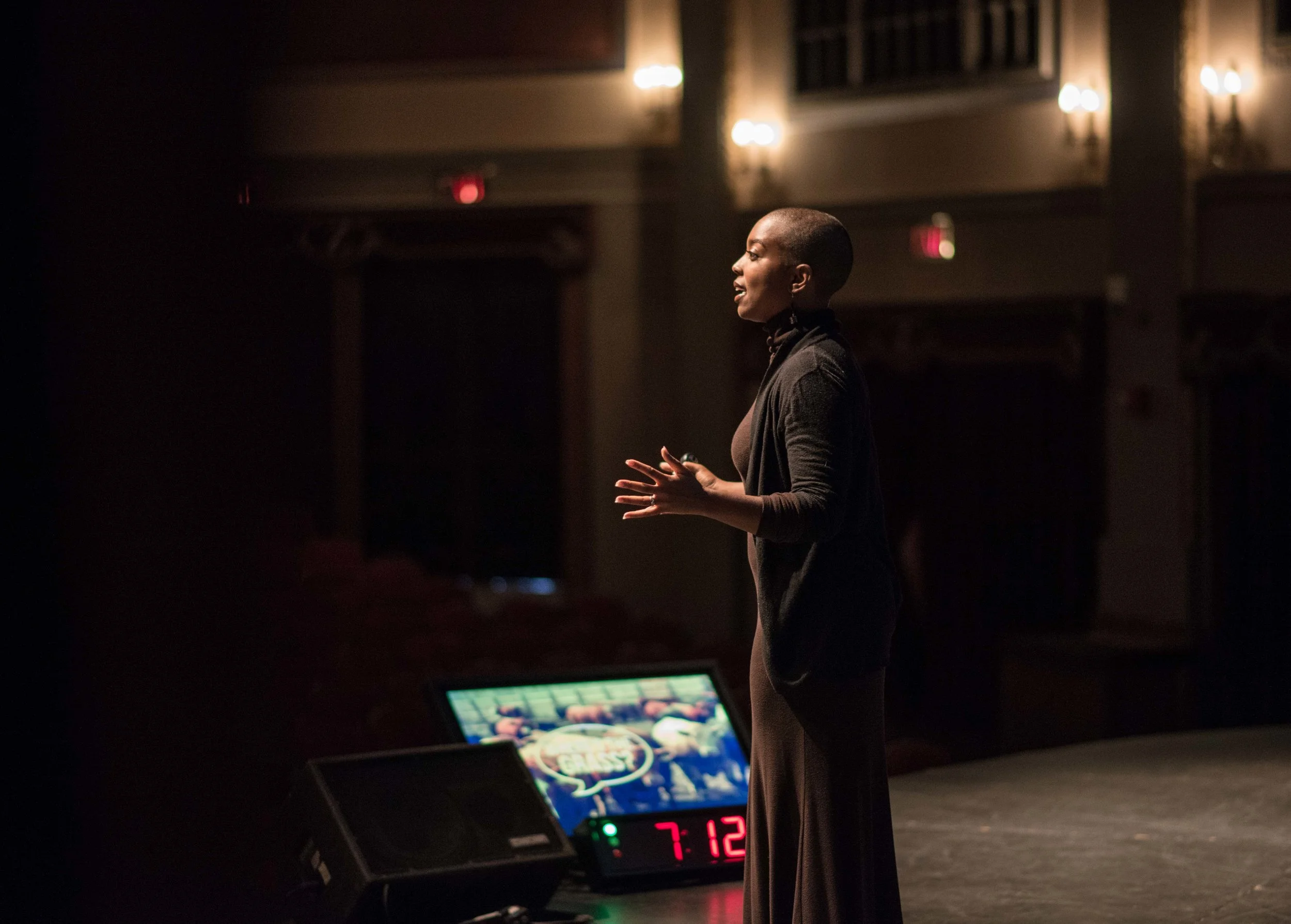Niaz Dorry moved to Glauster, Massachusetts, the oldest settled fishing port in the United States, in 1994, and she has been working with small-scale, traditional, and indigenous fishing communities in the U.S. and around the globe ever since. After a working as an environmental justice organizer in Greanpeace’s toxics campaigns, she started working on fisheries issues. She’s been organizing with the fishing families of the North Atlantic Marie Alliance since 2008, advancing the rights and ecological benefits of the small-scale fishing communities as a means of protecting global marine biodiversity. This year, NAMA and the National Family Farm Coalition decided to join forces and share leadership, with Niaz as their director. She is currently on a national tour of farms and fishing communities to kick of this joint effort. I spoke with Niaz just before she left on tour.
53: Janaki Jagannath on an ecological approach to environmental justice in the San Joaquin Valley
Janaki Jagannath is the former Coordinator at the Community Alliance for Agroecology, a coalition of community-based organizations in the San Joaquin Valley of California that work to advance agricultural and environmental policy towards justice for communities bearing the burden of California’s food system. Prior to this, she worked at California Rural Legal Assistance in Fresno, enforcing labor standards and environmental justice protections such as access to clean drinking water for farmworker communities. Janaki has assisted in curriculum development for the Sustainable Agriculture and Food Systems degree at UC Davis and has farmed diversified and orchard crops across the state, including conducting training at the Refugee Entrepreneurial Agriculture Project in San Diego County. Janaki holds a B.S. in Agricultural Development from UC Davis and a producers’ certification in Ecological Horticulture from UC Santa Cruz Center for Agroecology. She is currently pursuing her J.D. at King Hall. In this episode, Janaki talks to Devon about organizing in the San Joaquin Valley, building movements in the legacy of the United Farm Workers, and an ecological approach to environmental justice.
52: Jahi Chappell on Beginning to End Hunger
M. Jahi Chappell is a political agroecologist with training in ecology and evolutionary biology, science and technology studies, and chemical engineering. He is a Senior Research Fellow at the Centre for Agroecology, Water and Resilience (CAWR) at Coventry University, and a Fellow of Food First.
Jahi has recently published a book called Beginning to End Hunger: Food and the Environment in Belo Horizonte, Brazil and Beyond. It is rooted in his field research in Belo Horizonte over more than a decade, and presents a far-reaching analysis of how to end hunger, what is keeping us as a society from doing it, and how we might overcome the many obstacles in our way. Devon spoke to Jahi in the cafeteria of the United Nations Food and Agriculture Organization in Rome, during a vibrant symposium on agroecology. We talk about the experience of Belo Horizonte’s massive investment in food security, the expansion of those ideas to Brazil’s Fome Zero (Zero Hunger) programs, and the need to build trust between groups and find common agendas so that we as a movement are ready when political windows open for radical change.
Photo courtesy of Cecilia Rocha.
51: Elizabeth Mpofu of La Via Campesina on peasant leadership and fighting together
Elizabeth Mpofu is the General Coordinator of La Via Campesina, a global coalition of more than 164 farmer organizations from 73 countries. She is also a small-scale farmer in Zimbabwe, the leader of the Zimbabwe Smallholder Farmers’ Forum, and an advisor to the United Nations Food and Agriculture Organization. In this episode, she describes her unexpected path to leadership in the food sovereignty movement, the fight to be respected as peasants around the world, and the struggle for representation of the people most affected by development decisions. We spoke at the Thousand Currents offices in Berkeley last year.
Photo: DFID (CC 2.0)
50: Sana Javeri Kadri on living between Mumbai and the Bay Area, and decolonization as a series of questions
Sana Javeri Kadri is a sometimes salty, permanently hungry, rather creative human. She was raised in post-colonial Bombay, wound up in the produce aisles of California and can be currently found @sanajaverikadri on Instagram or in person wherever there are vegetables to be found. She is also schemer-in-chief for Diaspora Co-Op. In this episode, Sana talks with Chelsea about living between Mumbai and the Bay Area, the role of aesthetics in telling difficult stories, and decolonization as a series of questions.
49: Karla Diaz on cooking in prison and the migration of food traditions in and out of incarceration
Karla Diaz is an artist, writer, and activist. Born in Los Angeles and raised both in Mexico and L.A., her work uses performance and writing to question institutional power, explore social practices and cultural relationships, create collaborations and provoke dialogue among diverse communities. She received her MFA from California Institute of the Arts and has exhibited her work in local, national and international venues including MOCA, LACMA, the Whitney, the ICA Boston, and the Serpentine Gallery in London. She is co-director and founding member of Slanguage Studio. Her ongoing project, Prison Gourmet (2010-present) is a multi-media project informed by prisoners’ recipes made from commissary food items. She recently received an Art Matters award to continue its development. In this episode, Karla talks with Chelsea about cooking in prison and the migration of recipes and food traditions in and out of incarceration.
48: Ayhan Aydin on drawing on the richness of immigrant food traditions
Ayhan Aydin is a meal ecologist. His interdisciplinary practice consists of projects that consider art, science and food. He is interested in creating stories through meals and challenging the idea of what a meal is. As a cook, he likes to take ordinary food items and creates something unexpected but still familiar. He is one of the founders of Nordisk Matutveckling AB (Nordic Food Development), a company that creates new food products from Nordic ingredients, applying various culinary traditions to existing foods in order to utilize and repurpose them. His artistic work includes collaborations with OPENrestuarnt, a theater play called “Restaurang Allemansrätten” (the Restaurant Right of Commons) featuring a meal as a central part of the story, and several conceptual dinners. In this episode, Ayhan talks with Devon about making tempeh from Swedish fava beans, what it means to create something new from very old food traditions, and drawing on the richness of immigrant food traditions.
47: Severine von Tscharner Fleming on young farmers, emerging models for food and land sovereignty, and building a commons for the future of farming
Severine von Tscharner Fleming is a part-time farmer, activist, and organizer based in the Champlain Valley of New York. She is director of Greenhorns, a grassroots organization with the mission to recruit, promote and support the rising generation of new farmers in America. Severine has spent the last seven years gathering, bundling and broadcasting the voices and vision of young agrarians. Greenhorns runs a weekly radio show on Heritage Radio Network and a popular blog. They produce many kinds of media, from documentary films to almanacs, anthologies, mix-tapes, posters, guidebooks and digital maps. They are best known the documentary film, “The Greenhorns” and the raucous young farmer mixers they've thrown in 37 states and 14 grange halls. Severine is co-founder and board secretary of Farm Hack, an online, open-source platform for appropriate and affordable farm tools and technologies , as well as National Young Farmers Coalition which now boasts 23 state and regional coalitions. She serves on the board of the Schumacher Center for New Economics, which hosts Agrarian Trust, her latest startup, focused on land access for beginning farmers, and permanent protection of affordable organic farmland. Severine attended Pomona College and University of California at Berkeley, where she graduated with a B.S. in Conservation/ Agroecology. In this episode, Severine talks with Devon about young farmers, emerging models for food and land sovereignty, and building a commons for the future of farming.
46: Kitazawa Seed Company’s Maya Shiroyama and Jim Ryugo on 100 years of selling Asian vegetable seeds in the United States
Maya Shiroyama and Jim Ryugo run Kitazawa Seeds, a 100-year-old seed distributor based in California that specializes in Asian vegetables. The company was started by Gijiu Kitazawa in 1917, serving mostly Japanese-American gardeners on the West Coast. It closed for four years when the United States government sent Kitazawa and most of his customers to concentration camps during World War Two, and re-opened in 1945 shortly after their release. Maya and Jim had planted the company’s seeds in their home garden for years when a missing seed order led to them buying the company from Kitazawa’s granddaughter in 2000. In this episode, Maya and Jim talk with Devon about the 100-year history of the seed company, the global network of growers that supply their unique inventory of seeds, and the new and old varieties dear to Asian-American gardeners and farmers around the country.
45: Sandor Katz on the creative the creative tactics and community of Act Up, the modern relevance of ancient food traditions, and migrating from the city to the country.
Sandor Ellix Katz is a fermentation revivalist. Since publishing Wild Fermentation in 2003, he has taught hundreds of workshops demystifying fermentation and empowering people to reclaim this transformational process in their kitchens. The New York Times calls him “one of the unlikely rock starts of the American food scene.” Sandor grew up in New York City, where during the 1980s he was an activist with http://www.actupny.org, demanding medical and research resources to address the AIDS epidemic. He migrated from New York City to a commune in rural Tennessee in 1993 after testing positive for HIV. He now lives down the road from the commune and travels the world teaching fermentation. He published The Revolution Will Not Be Microwaved (2006), a book about food activists and underground fermentors he met on his tours of fermentation workshops, and The Art of Fermentation (2012), an encyclopedic volume that won a James Beard award. In this episode, Sandor talks with Devon about the creative tactics and community of Act Up, the modern relevance of ancient food traditions
photo by Kate Berry
44: The Peoples Kitchen Collective on nourishing a beloved community, from the farm to the kitchen to the table to the street
The People's Kitchen Collective (PKC) works at the intersection of art and activism as a food-centered political education project and cooperative business. Based in Oakland, California, their creative practices reflect the diverse histories and background of collective members Sita Kuratomi Bhaumik, Jocelyn Jackson, and Saqib Keval. Written in their family's recipes are maps of migrations and the stories of resilience. It is from this foundation that they create immersive experiences that celebrate centuries of shared struggle. Collectively cooking and sharing food is sanctified and celebrated community work in many cultures. With the passage of time, systems of imperialism--including capitalism and gentrification--have turned cooking into an inaccessible burden. In response to this inequality PKC has been creating accessible, healthy, and loving food spaces since 2007. Active in Oakland since 2011, they are committed to using local and organic ingredients whenever possible and sharing meals with as many people as we can. The goal of The People's Kitchen Collective is to not only fill stomachs but also nourish souls, feed minds, and fuel a movement. In this episode, PKC talks with Chelsea about nourishing a radical, beloved community, and feeding movement from the farm to the kitchen to the table to the street.
43: Norma Listman on preserving corn traditions and the meztizaje of food cultures in Mexico and California
Norma Listman is a Mexico City and Oakland-based chef and artist. Her practice is shaped by her heritage, and she is most interested in traditional cooking methods and the historical periods of Mexican gastronomy. Norma’s passion for the preservation of her culture and her father’s life-long work with maize have ignited her interest for working with native varieties of the crop. She began her career in some of the most prestigious restaurants of the Bay Area, managing the nationally acclaimed Camino Restaurant and long-time Bay Area institution BayWolf Restaurant in Oakland, before deciding to follow her passion and become a professional chef. As a food scholar she teaches Mexican culinary techniques at 18 Reasons in San Francisco. She currently lives in Mexico City and is focused on her research on Mexican native corn and nixtamalization. In this episode, Norma talks with Chelsea about preserving traditional corn varieties in a changing cultural and economic landscape, and the meztizaje of food traditions in Mexico and California.
DR Special #2: Peter Buckley on blackberries and the challenges and beauty of running a diverse farm
Peter Buckley is a blackberry grower, philanthropist, and co-owner of Front Porch Farm. Peter has had several careers— after closing his law practice in San Francisco, he moved to India to establish a buying agency, and later did the same in Argentina and Brazil. Later, unusual circumstances, luck and friendship resulted in him owning Esprit, a fashion business headquartered in Germany. After meeting Mimi and having two boys in Germany, Peter decided it was time to return to San Francisco. He sold his interests in Esprit and moved to Mill Valley. Together with Mimi they built the Greenwood School (K-8). Peter’s interest in Education lead to co-founding the Center For Ecoliteracy (Berkeley) and commitment to conservation lead to building The David Brower Center (Berkeley) as a home for the environmental community. Peter continued to work with his former business partner Doug Tompkins, building National Parks in Chile and supporting many forms of environmental activism. Embracing regenerative nature of farming, Peter and Mimi started building farms in Oregon and California. Riverbend Farm and Looking Glass Farm are organic blueberry operations in Oregon, and Front Porch Farm in Healdsburg is a highly diversified farm where Peter and Mimi currently live. Recently, he seems to have taken a great interest in blackberries. In this special summer episode, Devon talks with Peter about blackberries, and about the challenges and beauty of running a diverse farm.
42: Dan Imhoff on how the wild got pulled out of farming, and making agriculture hospitable to wild nature
Dan Imhoff is an author, musician, and artisan food producer who has written for 25 years on ecological sustainability. His books include Farming with the Wild, Food Fight, and Building with Vision. Dan is the president and co-founder of Watershed Media as well as president and a co-founder of the Wild Farm Alliance, a national organization that works to promote agriculture systems that support and accommodate wild nature. He lives on a small homestead farm outside of Healdsburg, California. In this episode, Dan talks to Devon about how the wild got pulled out of farming, how to make farms hospitable to wild nature.
41: Aileen Suzara on decolonizing food traditions, and the power of food and food stories to heal
40: Suzi Grady of Petaluma Bounty on addressing the root causes of hunger while addressing immediate needs
39: Albert Straus of Straus Family Creamery on building a sustainable, organic food system and revitalizing rural communities.
38: Annie Somerville of Greens Restaurant on cooking in a Zen monastery, building relationships with farmers, and supporting workers during a housing crisis
37: Nikki Silvestri on carbon farming and the need for economic power in the food movement
36: Amy Franceschini on victory gardens in San Francisco, a Seed Journey to the Middle East, and the importance of not finding a common language
Amy Franceschini is an artist and educator who creates formats for exchange and production that question and challenge the social, cultural and environmental systems that surround her. An overarching theme in her work is a perceived conflict between humans and nature, and her projects reveal the ways that local politics are affected by globalization. In 1995, Amy founded Futurefarmers and in 2004, she co-founded Free Soil, an international collective of artists, activists, researchers, and gardeners who work together to propose alternatives to the social, political and environmental organization of space. In 2008, Amy worked with the City of San Francisco to transform the plaza in front of City Hall into a modern victory garden, and to build gardens in people’s back yards. She is currently sailing from Oslo to Istanbul as part of Seed Journey, bringing seeds found in Norway and other points in the northern hemisphere to their center of origin in the Middle East and connecting with seed savers, farmers, bakers, activists and others along the way. Amy grew up on a farm in the Central Valley of California. In this episode, Amy talks with Chelsea about her victory gardens project in San Francisco, a Seed Journey to the Middle East, and the importance of not finding a common language.
Photo: RS 10 Christiania by Martin Høy

